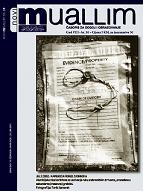OSNOVNE SLIČNOSTI I RAZLIKE IZMEĐU HOLOKAUSTA NAD JEVREJIMA I GENOCIDA NAD BOŠNJACIMA
BASIC SIMILARITIES AND DIFFERENCES BETWEEN JEWISH HOLOCAUST AND GENOCIDE OF BOSNIAKS
Author(s): Rasim MuratovićSubject(s): Politics / Political Sciences
Published by: Rijaset Islamske zajednice u Bosni i Hercegovini
Summary/Abstract: Holocaust and genocide considered as a term or a phenomenon are and the same thing. However, term genocide has been introduced in terminology and the subject of the international law and holocaust has not. Evil is a very strange phenomenon itself. Genocide as a kind of evil is even more peculiar. Bizarrely limitless. Evil that is ideologically comprehensive is no longer defined as evil, but as good, it is not immoral but moral! In case of genocide of Bosniaks, reports of survivors very often without much consideration overemphasize the role of acquaintances, school-friends, colleagues from work and neighbors. We do not intend to deny that it really happened, but we wish to stress the fact that only because those who committed genocide did not have sufficient apparatus were they forced to mobilize the local population in acts as arrests and massacres. We must point out that first troops of slaughterers were brought from outside, in the same way as it happened in the Second World War. Many journalists as well as historians have overemphasized the phenomenon basing their articles and reports on the fact that the survivor has recognized one or two familiar faces amongst his torturers. We have seen here specialized forces, especially prepared in Croatia in 1991, as well as paramilitary forces from Serbia and Montenegro, troops of the Yugoslav national army recruited in accordance to the principle of paramilitary forces from Russia, Greece, Romania and other countries. For the mentioned criminals who committed the genocide, Bosniaks were, just like Jews before them, satanized and they were the main part takers and as for those who knew their victims, they had the task which they had to carry out. Besides, these “volunteers” or paramilitary troops from Serbia and Montenegro had their local guides and it was not difficult for them to present themselves as locals in order to achieve their goal, and that was to ruin the existing national and interreligious tolerance that was a hallmark of Bosnia and Herzegovina for centuries. Such a situation was created that those who were the Bosnian members of the paramilitary troops from Serbia and Montenegro had to essentially be the neighbors of their victims. These manipulations have already been seen in the Second W.W. in 1941, performed by the ustasas in the territories populated by Muslims. The list of the basic similarities and differences between these two genocides is not final and we hope this article will serve as an encouragement for further studies in this field.
Journal: Novi Muallim
- Issue Year: 2007
- Issue No: 30
- Page Range: 23-29
- Page Count: 7
- Language: Bosnian

